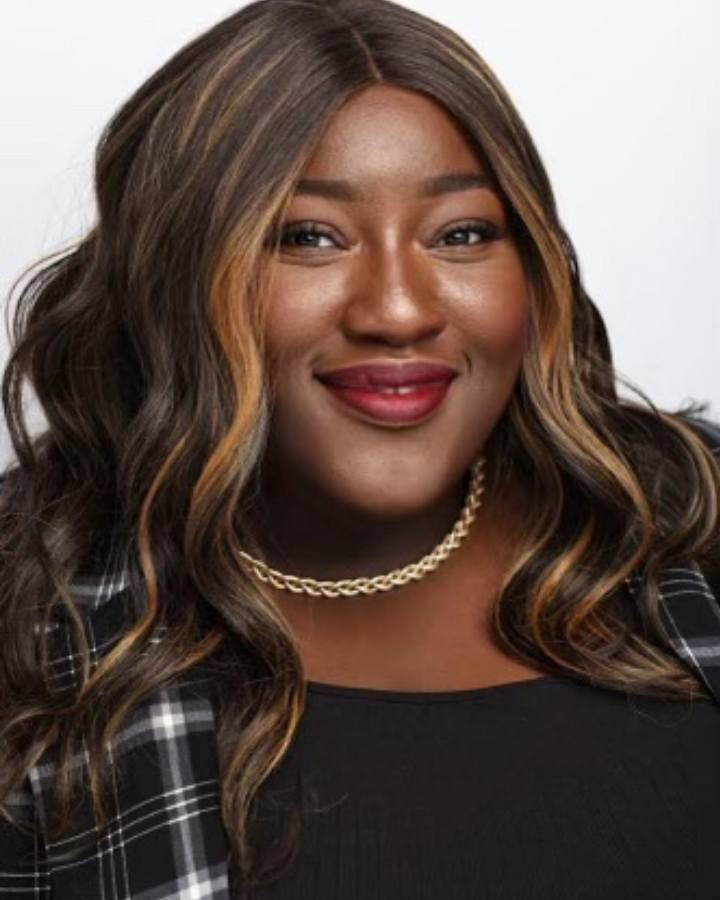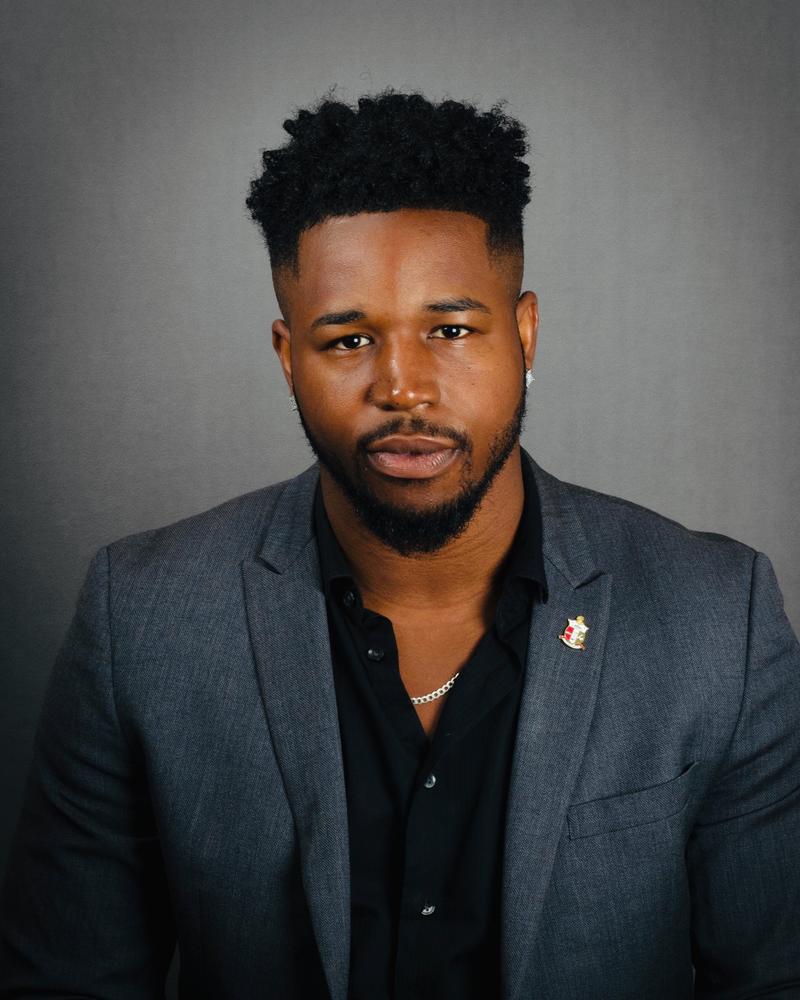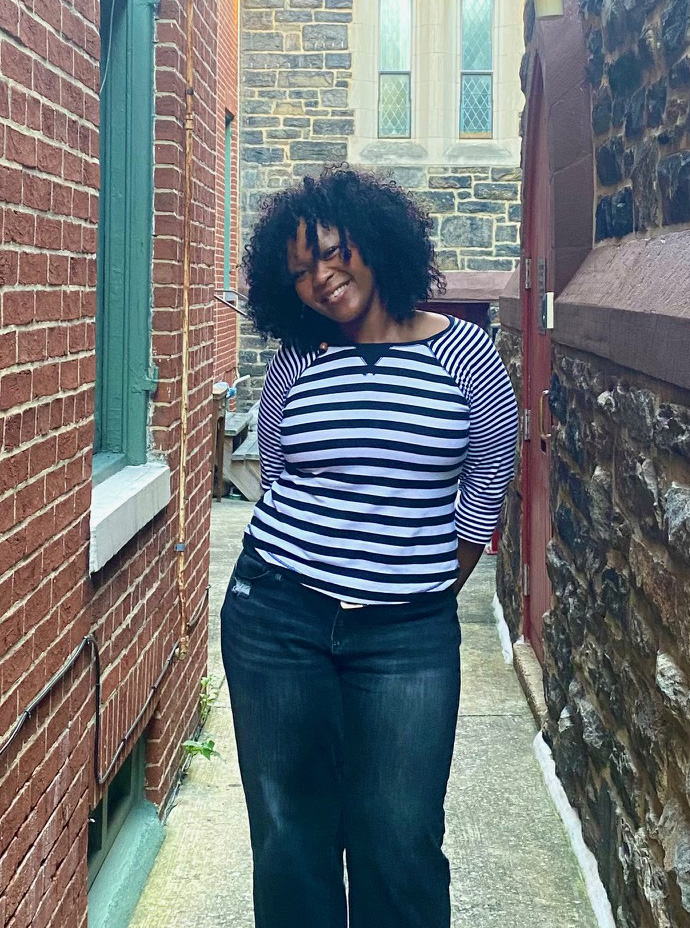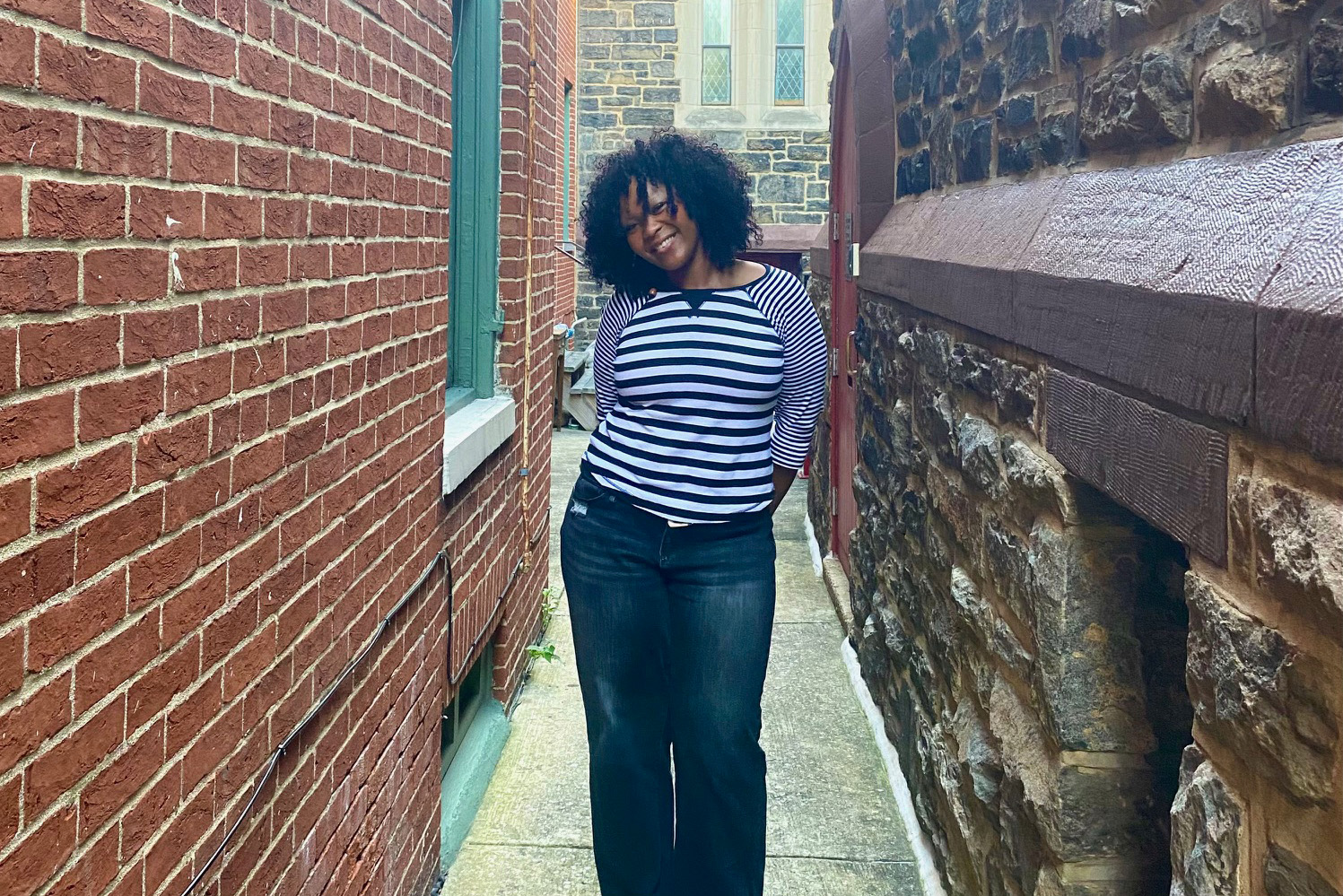Student Stories
Thousands of Stories, One College Town
Baltimore is an incredible place to live, learn, and work. Each student in this great college town has a unique perspective and story. Read about the students, alumni, and professionals who cal Baltimore home.
Read Their Stories
-

Deli Okafor
"The biggest lesson I learned was about emotional intelligence, and how important it is to approach others as a leader. That was the theme—learning how to talk to people with empathy."
-

Chijioke Oranye
"There aren't many cities like Baltimore, a city that has so many colleges and universities, where people come from all over the world to learn and engage."
-

Ashley Iloanya
"The city truly has something for everyone if you take the time to look for it. It’s easy to feel a part of the community and culture here. Whatever your thing is, go out and find it!"
A LEADER'S APPROACH
 Deli Okafor Collegetown LeaderShape Class 9
Deli Okafor Collegetown LeaderShape Class 9I loved LeaderShape. I learned more about myself as a leader and what my skills can bring to the group. I also got to develop a project, which was around youth mentorship—that is something I still carry with me to this day. Many of the things I’m passionate about and my other experiences, such as sitting on the board of the Young Democrats of Maryland and Maryland Student Legislature, are related to that. That passion is something that I learned about in LeaderShape.”
STUDENT PERSPECTIVESDeli Okafor Collegetown LeaderShape Class 9
Collegetown LeaderShape Class 9Tell me about your experience with Baltimore Collegetown and your personal journey.
I’m Baltimore born and raised. I started off my college career at the Community College of Baltimore County, and I always saw Baltimore Collegetown materials around. I had friends from high school who participated in their programs at their four-year colleges. It was something I always strived to do, but I never had someone to give me that push.
Then when I transferred to UBalt, I was really involved in student life. The Director of Student Life nominated me to apply to the LeaderShape program, and I got in. That was my biggest achievement at the time due to the program's reputation for professional development with student leaders. I was class nine. Throughout the year, I got to do service projects and meet with different student leaders from across the state. That helped me to build my professional network. Through Collegetown’s internship database, I also got a few internships during college.
What was LeaderShape like?
I loved LeaderShape. I learned more about myself as a leader and what my skills can bring to the group. The biggest lesson I learned was about emotional intelligence, and how important it is to approach others as a leader. I also got to develop a project, which was around youth mentorship—that is something I still carry with me to this day. Many of the things I’m passionate about and my other experiences, such as sitting on the board of the Young Democrats of Maryland and Maryland Student Legislature, are related to that. That passion is something that I learned about in LeaderShape.
How has your college experience shaped your life? How has Collegetown, and Baltimore, played a role in that?
At my core, I’m someone that is really interested in the community. I love doing community engagement and public outreach. Just being able to share resources with people so that they know what’s available to them, and use resources to elevate their lives. That’s what I look for in any role.
What I really love about working on our team at the Comptroller's office is the public engagement opportunities—she wants the office to be out in the community. Our team is new, but in my role, I’m in charge of doing outreach to Baltimore City, Baltimore County, and Howard County. I do outreach to higher education and youth. In other words, what I started in Collegetown is still helping me to this day. It remains my focus to do outreach to youth.
When you are able to reach people when they’re young, you can really change the trajectory of their lives. Thats kind of what Baltimore Collegetown did for me.
Why did you choose to remain in Baltimore after college?
After college, I stayed because Baltimore has an amazing arts and music scene. Plus, the food and culture are great. I love how it’s in close proximity to other cities and states regionally—I’m a big fan of public transportation. I love hopping on Amtrak to DC on the weekends, and being able to go to Philly and New York if I ever want to.
It’s a big mixing pot of cultures. Particularly in the city, there are a lot of different organizations that you can join to meet with people and learn about specific issues.
If you could sum up your experience with Collegetown in one word or sentence, what would it be?
It was a transformational experience that left a big impact in my life. It continues to really impact me professionally.
A RENAISSANCE OF IDEAS
 Chijioke Oranye Collegetown LeaderShape
Chijioke Oranye Collegetown LeaderShapeI was around students from the Baltimore Collegetown Network that came with a willingness to engage with different lived experiences. Being around people like that is a necessary part of growth. That was the most fulfilling aspect of the program: the people, and the love of learning that I was able to embrace because of the humility of others around me.”
STUDENT PERSPECTIVESChijioke Oranye Collegetown LeaderShape
Collegetown LeaderShapeTell me about your experience with Baltimore Collegetown and your personal journey.
I’m originally from Nigeria. I was born there and came to Baltimore at age 8. Since immigrating, I’ve stayed in Baltimore all of my life. I went to Johns Hopkins University’s Homewood Campus, which is where I fell into Baltimore Collegetown.
My origin story starts before me. My dad was a child soldier in the Biafran Civil War. The Civil War was in the late 1960s; while the USA was having its own era of civil rights, Nigeria was rampant with corruption and the down-trickle effects of colonization. When my dad was old enough to leave, he went to America and pursued a degree in divinity at Loyola University [of Maryland]. He was experiencing homelessness while he was getting his education, but he was able to find work doing outreach. Then he brought my brothers and my mom up to America to stay for good.
The things that define my growth process—community and civic engagement and leadership—was an intrinsic part of that, just being someone that always wanted to be welcomed. With my own story and background as an immigrant to Baltimore, I have a great understanding of those who are outcast in society.
What made you want to participate in Collegetown's programs?
Collegetown was a breath of fresh air. What I think is that no matter where you are in life, learning is always a continuous process. The art of learning is the art of lived experiences. If you don’t have that, it involves learning the lived experience of others. Maybe that means you’re doing research on different communities, or that you’re trying to uplift those that have these negative health outcomes that you learn in class with professors that have spent years researching and looking for answers.
I was around students from the Baltimore Collegetown Network that came with humility, vulnerability, and a willingness to engage with a point of lived experience. That means you recognize everyone in the room for what they are and not necessarily who they were before. That’s a necessary part of life and understanding, and a necessary part of growth. I had a great time being around people that I could connect with and that could connect with me, too. That was the most fulfilling aspect of the program; the people, and the love of learning that I was able to embrace because of the humility of others around me.
What was LeaderShape like?
When I did the program, it was divided in two semesters. In fall, they welcomed us, and in the spring, they took off the training wheels to get a taste of what civic leadership looks like for you—with guidance, of course. On the spring part of my LeaderShape journey, I started a discussion forum called Community Conversations. And this forum, when it was created, was meant to raise awareness of systems thinking—the idea that systematic divides exist, and we can connect those divisions from a point of lived experiences because we all play a role in that.
I was able to get funding from Collegetown to start a panel series about systematic divides. That was the beginning of my career in social engineering, which is a way of redesigning how we think and engage as human beings.
How has your college experience shaped your life? How has Collegetown, and Baltimore, played a role in that?
The LeaderShape program was part of the impetus behind my career path. In university, I wrote a paper where I tried to find data points to shed light on the larger systematic forces at play that affected my own integrity and self-identity.
My professor told me that the paper was amazing, but no one would understand it because they’re in a platform where these things aren’t discussed. It was up to me to create that platform where things like this can have power and be powerful. From that paper and that advice, I created the LeaderShape forum where people could understand not only my lived experience, but their own, as well, and how the diversity of these larger systematic processes affected them. Instead of making it about myself, I allowed them to bring their own lived experience to the table to look for solutions for breaking those barriers down.
I gained confidence came from Collegetown, too, where I met a humble but ambitious group of people. But it’s also in Baltimore. There’s not many cities like Baltimore, that have so many colleges and universities where people come from all over the world to learn and engage. I think what’s fascinating to me is that I still hold that perspective, understanding that Baltimore itself is a college town network. If you stay in Baltimore, you get to see Baltimore as an interconnected ecosystem. If you don’t stay, you can go out in the world and take what you’ve learned into other interconnected ecosystems in different cities. That’s what I find special about the program.
If you could sum up your experience with Collegetown in one word or sentence, what would it be?
Renaissance. Renaissance in the sense that there’s an openness to it.
I think a renaissance is a time where the arts, sciences, the hard engineers, the humanities and culture—all fields are all able to mix and evolve into a deeper level of thinking, integrity, acknowledgement, and awareness of others. That then pours into the diversity of thought that you’re able to make within those sectors and industries. Students are allowed to enter a state of vulnerability within Collegetown’s programs that allows for a melting pot of ideas, thought, and people. From that point on, they can make even bigger discoveries within specializations that they work in that they can continue to grow into.
OPPORTUNITIES ABOUND
 Ashley Iloanya Johns Hopkins University, 2026
Ashley Iloanya Johns Hopkins University, 2026Surrounded by the people and places that make it home, I find the familiarity of my hometown very soothing. But in Baltimore, I was confronted with something entirely new. I was drawn to the city’s faster pace, its history, and honestly the unfamiliarity of it all. I wanted the opportunity to explore new people and places, I wanted the opportunity to challenge myself to grow not only as a student, but as a person, and Baltimore gave me that.”
STUDENT PERSPECTIVESAshley Iloanya Johns Hopkins University, 2026
Johns Hopkins University, 2026Why did you choose Baltimore for college?
I have lived in Prince George’s County, Maryland my whole life. Surrounded by the people and places that make it home, I find the familiarity of my hometown very soothing. But Baltimore confronted me with something entirely new. I was drawn to the city’s faster pace, its history, and honestly the unfamiliarity of it all. I wanted the opportunity to explore new people and places, I wanted the opportunity to challenge myself to grow not only as a student, but as a person, and Baltimore gave me that. Moving to a city that was completely new to me, and where every experience felt fresh and exciting, gave me confidence to experiment with my tastes and interests.
Since starting college in Baltimore, I’ve become more experimental with my fashion and hair choices, including starting my loc journey and eventually a small hair service business. The city has also inspired me towards new artistic ventures like oil painting, and an unexpected love for new cuisines (the day I tried the bun sandwiches from Ekiben genuinely changed my life). That sense of newness was exactly what I was looking for, and it’s what drew me to Baltimore for college.
Why did you choose your major?
I’m a brain science major; I major in neuroscience. My interest in neuroscience grew out of curiosity about how the brain shapes the way we think and behave. I find the brain to be the most complex and captivating organ, the very nature of who we are is stored within it. I wanted to understand the mind all the way down to the molecular and cellular level, like how biology translates into the way we think, feel, and act.
I knew early in high school that I wanted a career that played a hand in medicine and healthcare, and in college I’ve become especially interested in studying neurological diseases and brain tumors and understanding how research can lead to novel treatments. That curiosity has translated into hands-on opportunities where I’ve traveled to other universities for summer research projects, presented my work at national conferences like The Annual Biomedical Research Conference for Minoritized Scientists (ABRCMS), and built a network of mentors and peers who share my passion. Since college, my passion for brain science has only grown and I’m excited to continue pursuing a career that informs patient care.
What has been your most rewarding experience in your studies thus far?
The most rewarding experience in my studies has been the number of hands-on experiences that have allowed me to build practical skills. I appreciate the opportunities I have had to conduct research projects both in my classes and in academic labs that felt meaningful. I remember freshman year in my introductory computational course I completed a project that used programming to analyze waste production trends in my hometown and propose strategies to waste management challenges. It was rewarding to see my interest in environmental science actualize into a project with real-world implications, and it showed me, perhaps for the first time, how my classroom work could translate into real impact.
I have also found mentorship from professors to be deeply rewarding, building a genuine network of mentors has opened many doors that are furthering my career and personal development. For example, last year during winter break, my school’s Life Design Center organized a trip to visit biotech companies in Orange County, California along with an alumni mixer. It was incredibly rewarding to speak with professionals in the field and hear perspectives from people who were once a student like me. I appreciate how my school has created these pathways for me.
What do you love most about your school and Baltimore?
I admire the passion that I see within the students and faculty here [at Hopkins]. Many of my peers are deeply committed to making an impact in their fields and creating a beautiful future for themselves. The faculty, especially in neuroscience, bring genuine enthusiasm to their teaching. It’s always a good sign when your professor is still excited about a lecture/topic they have taught for years on end! Being surrounded by such driven people motivates me to work harder and stay passionate about my own goals throughout my journey.
For Baltimore, I love the artistic side. Baltimoreans are very bold and expressive. You can see it in the architecture— the row homes lined with string lights, the murals that cover almost every block. And you can hear it in the music scene too, it’s so layered, you can catch anything from a jazz show to indie-rock to R&B. I see the same creative energy in flea and farmers markets here— The Black Mall, Bmore Flea, Lucky Girl Market— I’m constantly impressed by the talent of Baltimore creatives. I also enjoy theatre, and Baltimore has no shortage of groups to support. Last spring I saw a production of Lempira by the Baltimore Rock Opera Society, it was such a unique production, I loved it. One of my favorite parts of last semester was taking oil painting and learning so much more about the richness of Baltimore’s art community, I even had the chance to visit the studios of local artists. Within all of this, there are many Black-affirming spaces throughout Baltimore that celebrate history, culture, and community, and they have given me a deeper sense of connection to the city.
What would you say to someone considering attending a college in Baltimore?
The city truly has something for everyone if you take the time to look for it. It’s easy to feel a part of the community and culture here, go to a festival of your choice, engage with a local business, start one of your days volunteering with a local organization, go to an Orioles game— whatever your thing is, go out and find it! You’ll quickly meet both natives and newcomers who take pride in Baltimore. Academically, there are so many opportunities for students. Many of my peers have interned with local companies, and there are research institutions like UMB and Hopkins in the city, and HBCUs like Morgan State and Coppin. If you love to travel, the location couldn’t be more convenient in my opinion, Philadelphia, New York, and DC are all just a train ride away.